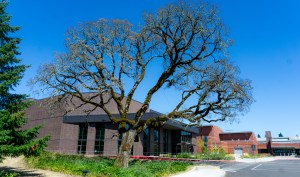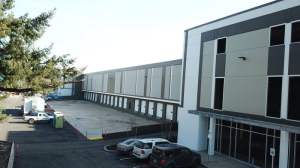Mike Selvaggio looks to lead West Linn-Wilsonville schools through financial hardship
Published 9:40 am Monday, May 5, 2025

- Mike Selvaggio (Submitted by Mike Selvaggio)
Mike Selvaggio understands that it’s a challenging time to join the West Linn-Wilsonville School Board. An estimated $15 million in budget cuts has put the district in a difficult financial position.
“My kids are going to be in school. They’re going to be relying on those budgets, and so are 9,000 other kids,” said Selvaggio. “I consider the experience that I have in the public sector, especially dealing with public finance issues — there’s not many people I trust more than me to help navigate through that.”
Selvaggio is running for position 1 on the WLWV School Board, the seat vacated by board chair Louis Taylor, who is not seeking reelection.
Trending
Selvaggio’s experience in Oregon politics goes back two decades. He served as a policy director at Oregon State Treasury and now runs his own political consulting firm, Ridgelark Strategies. He’s lived in West Linn for 14 years and this fall, his eldest will start at Willamette Primary School. In 2015, he ran for West Linn City Council but lost that race to Bob Martin.
“I’ve found myself doing a lot of armchair quarterbacking about the district’s handling of financial issues,” said Selvaggio. “The staff knows how to run an organization. I think they know how to write a balance sheet, but I feel like a lot of times it’s on autopilot, and sometimes it’s steering off in weird directions.”
Selvaggio used Oppenlander Fields as an example.
“The idea that they were going to sell this piece of land starts out from a very normal place — we have a land bank and we’re going to sell this because we’re gonna trade it for money,” he said. “Then the city enters the picture and the district comes out with this statement about ‘we’ve looked and decided that it would be beneficial to be kept as a field,’ and that’s where it starts to veer a little bit. What’s the purpose of this land bank? Is it to raise money or is it to just do good things with real estate?”
Selvaggio added that he considers it financially irresponsible to make decisions about real estate assets without an asset management plan, and in the case of Oppenlander choices were being made that would only benefit half of the school district.
Selvaggio’s experience working as a professional political consultant means that he feels comfortable having the hard conversations. He also feels comfortable saying directly that education continues to be underfunded in Oregon.
Trending
“I was at a table after the (November 2024) election with a number of interests that were discussing, ‘Do we push for revenue this legislative session?’ And there were some legislators around the table and they said, ‘One of the big issues is that some people think that K-12 is financed enough,’” he said. “It was very awkward, and I said, ‘Listen, I gotta let you guys know, with all due respect, this last legislative session, meaning 2023 at the time, you just passed a K-12 budget that was in terms of real dollars, a cut in per pupil spending. And yet, since it was the highest nominal K-12 budget you’ve ever passed, you threw yourself several parades.’”
However, that doesn’t mean that Selvaggio feels hopeless; he sees multiple answers to public education’s challenges. He suggested that the anchor of Oregon’s education funding comes in the form of PERS obligations that school districts can’t afford to pay.
“We’ve got this tier one hump to get over, but we also have this Measure 5 and 50 problem,” said Selvaggio, referring to the oldest and most expensive PERS tier, as well as the two state laws that established how property taxes fund public education. “We definitely need property tax reforms because, for example, we have a housing problem and this is a great example of the interconnectedness of all this stuff.”
He’s also a parent, navigating the network of services for his child.
“Our journey thus far has been, I think, like a pretty standard family who has special needs in the district. And I think the important thing that we’ve learned by necessity is that it’s not just a West Linn-Wilsonville School District issue,” said Selvaggio. “When you look at a lot of the issues, from Oppenlander, to the Small Schools Task Force, to the budget, to PERS, it’s easy to see these issues as siloed within the district, but almost every single one of them warrants addressing in a bigger ecosystem.”
Selvaggio hopes that post-pandemic assessments can continue to improve, but wants to get down to basics when it comes to supporting students.
“We always talk about the Quality Education Model and I think that’s great in terms of an aspirational goal. We also need to consider what I like to call the basic education model, which is, ‘What’s the level at which we’re making sure that students aren’t being left behind,’ and finance that first,” said Selvaggio. “I want every kid to have a safe, welcoming and well resourced place — and safe and welcoming, I think, go hand in hand. The more you have affirming spaces, the more those kids see themselves reflected in their student body, in their staff, in their curriculum.”







